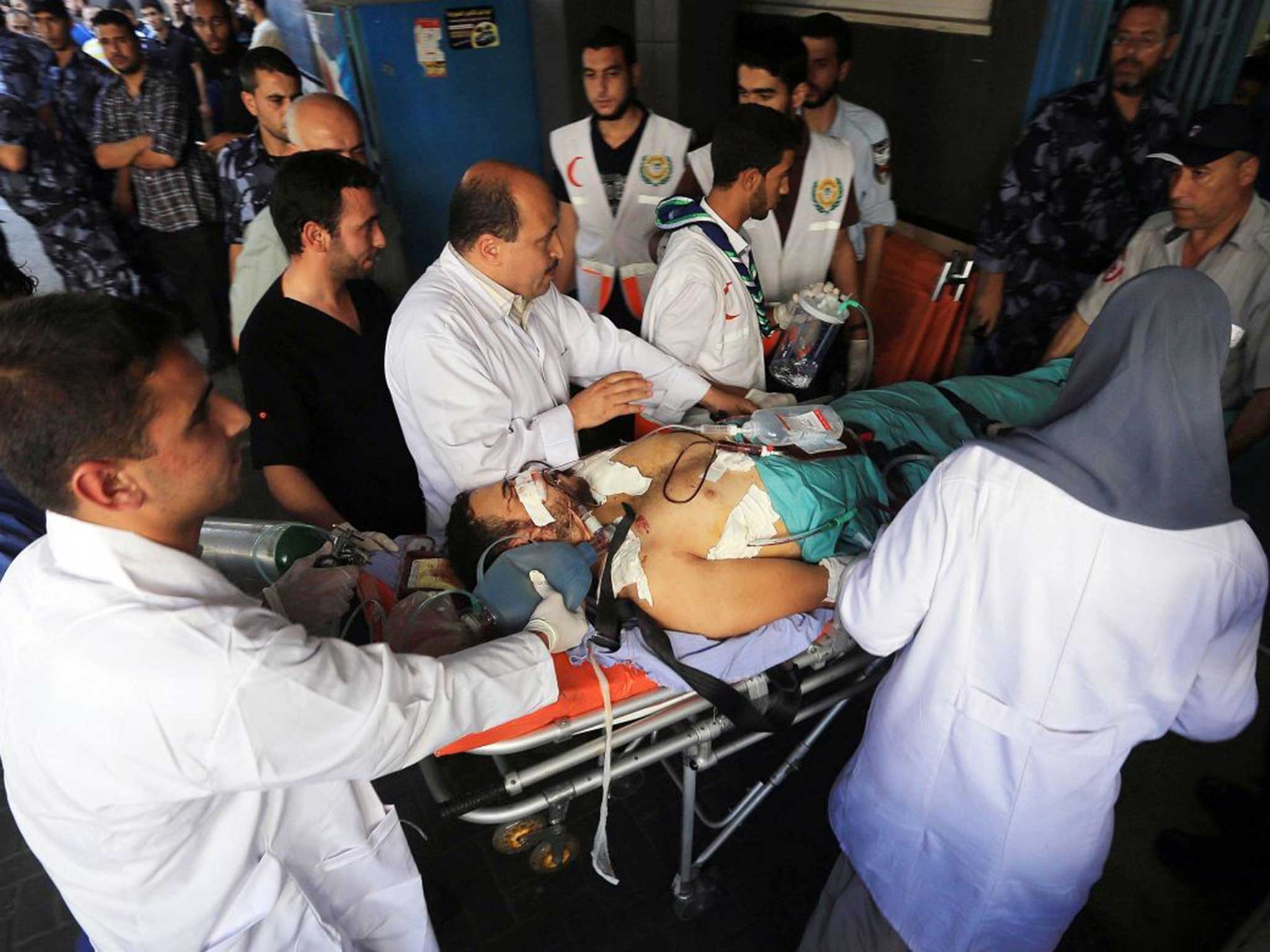Israel-Gaza conflict: Medics struggle to treat Gaza's casualties as clean water and fuel run dangerously low
After hundreds of missile strikes, the UN estimates that 77 per cent of people killed there have been civilians

The aid effort in Gaza was sure to follow the first reports of civilian casualties. Yesterday, as the number of deaths and injuries increased, humanitarian workers were struggling to access those most in need.
After hundreds of missile strikes, the UN Office for the Co-ordination of Humanitarian Affairs estimates that 77 per cent of people killed in Gaza have been civilians. Speaking to The Independent on Sunday from Gaza City, where a mosque and centre for the disabled were hit yesterday, Audrey Landmann, the medical co-ordinator for Médecins sans Frontières, said doctors were "struggling" to reach patients.
"The health system in Gaza is very fragile. It was already fragile before the beginning of the war. With the increase in patients in the hospitals, the situation can very quickly become catastrophic," she said.
She described an influx of the most severe cases including explosive injuries as the biggest problem facing doctors in the region. At Al-Shifa hospital, she said, the majority of patients are surgical cases from such explosive injuries with "mainly brain injuries or everything related to bones, fractures, displaced fracture, open fractures".
"What we are really looking for is a way to continue to treat our patients," she said. "This is the main concern for us to have humanitarian access and to be able to treat our patients. Hopefully in the coming days, we will be able to secure enough access to be able to reach our patients without risking the lives of our team."
Oxfam said it had to suspend efforts to chlorinate water supplies in Gaza because of the violence. Oxfam's local director, Nishant Pandey, estimated that 90 per cent of drinking water in Gaza is unsafe to drink; taps for 100,000 people have been cut off because a pipeline and wells have been destroyed. "Water pumps and sewage plants could stop functioning within days because of severe shortages of fuel," Mr Pandey warned. And according to Oxfam, hospitals in Gaza could run out of fuel to power generators within days.
A health centre in Beit Hanoun that specialises in prenatal and antenatal care was badly damaged and is now unable to operate. "We are supporting other clinics that are continuing to try to provide services, Mr Pandey said. "But many are in areas that have seen heavy air strikes, and local people are scared to try to reach them."
Join our commenting forum
Join thought-provoking conversations, follow other Independent readers and see their replies
Comments
Bookmark popover
Removed from bookmarks